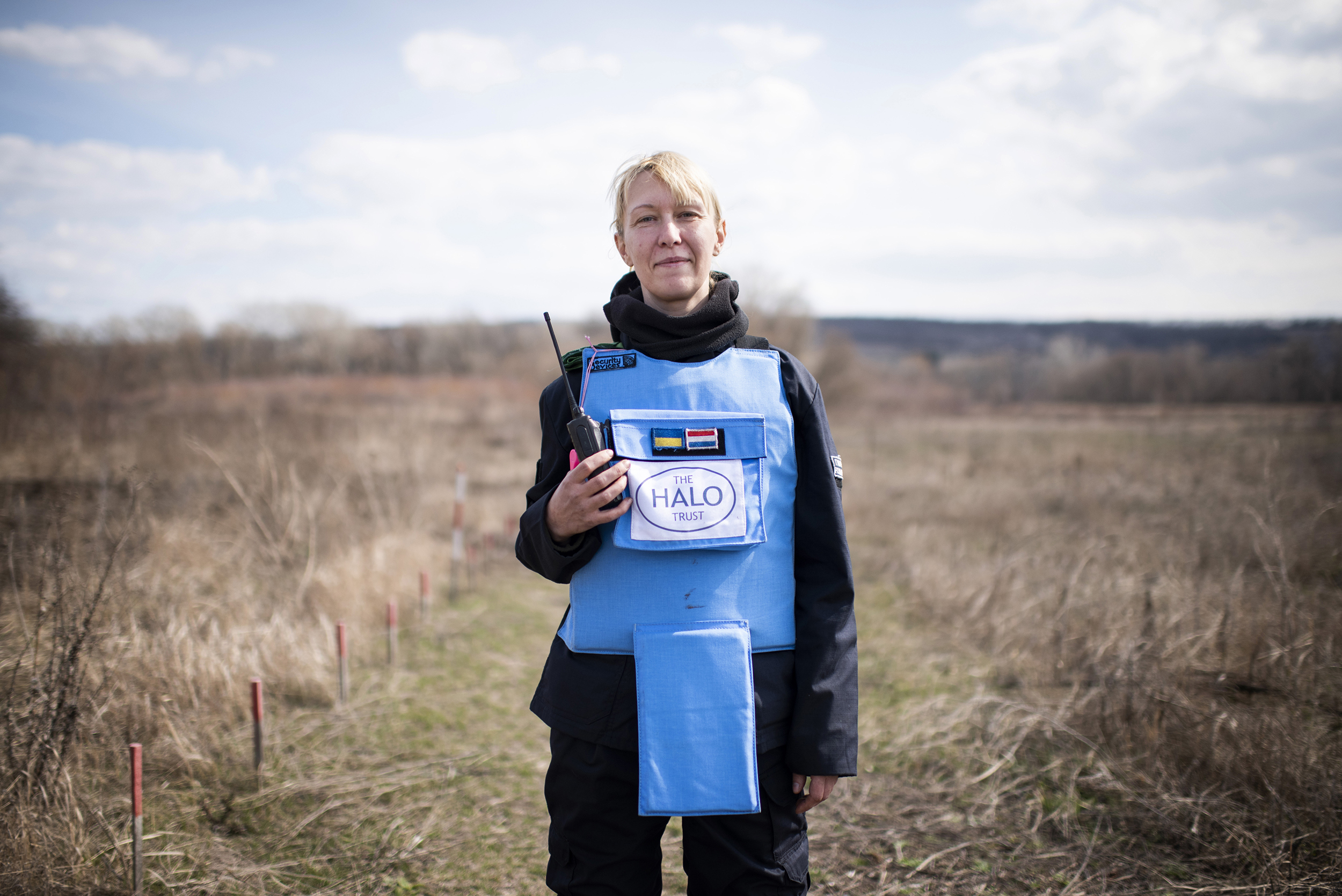Mine Awareness Day: UNHCR reaffirms commitment to reinforcing mine action strategies
Mine Awareness Day: UNHCR reaffirms commitment to reinforcing mine action strategies

GENEVA, April 4 (UNHCR) - UNHCR marks today's International Day for Mine Awareness and Assistance in Mine Action as operations continue in Afghanistan, Angola, Sudan and elsewhere to raise awareness and clear unexploded munitions that hamper the return home of displaced persons and refugees around the world.
Landmines and other unexploded munitions continue to claim the lives of an estimated 15,000 people each year in nearly 80 countries. The victims include refugees and internally displaced people in countries like Colombia, Lebanon and Sudan. "They take an unacceptable toll on lives and limbs. They wreak havoc on people's livelihoods. They block access to land, roads, and basic services," UN Secretary-General Ban Ki-moon said in a message marking the anniversary.
But he added that there had been progress in mine action efforts, thanks to the concerted efforts of the United Nations, member states, non-governmental organisations and the mine-affected countries themselves.
Assistant High Commissioner for Operations Judy Cheng-Hopkins, speaking to reporters in Geneva on Tuesday, said UNHCR welcomed the opportunity to support mine awareness day.
"Mine action - including unexploded ordnance [UXO] and explosive remnants of war - is an important part of international protection and a vital component in operations with human security concerns in many countries," she said.
"As lead of the global protection cluster within the inter-agency humanitarian response mechanism, UNHCR is committed to reinforcing mine action strategies into all relevant country programmes. Increased cooperation between UNHCR and mine action partners, such as the UN Mine Action Service [UNMAS], is already evident and the benefits to the persons of concern are realised on a daily basis," Cheng-Hopkins added.
She identified some projects in which UNHCR is involved this year, including community mine risk education and advocacy for returnees in southern Burundi; survey and UXO clearance projects, including mine risk education, in South Sudan; mine risk education for refugees in Kenya's Kakuma refugee camp; and a mine risk education campaign for refugees and Zambians in mine-ridden areas.
In South Sudan, UNHCR conducts its mine risk education programmes for arriving refugees at way stations with help from the Mines Advisory Group (MAG). "The sessions normally last for an hour-and-a-half. We use charts, pictures, videos and explanatory and interactive discussions followed by a question and answer session," said Jean Fokwa, a UNHCR staffer in the town of Yei. Refresher courses take place once the refugees reach their final destination.
In Blue Nile State, UNHCR coordinates closely with the UN Mine Action Organisation and UNMAS in clearing mines from roads. Another partner, the Danish Demining Group, is clearing unexploded munitions all over South Sudan.
UNHCR is also involved in mine action projects in other parts of Africa, including Chad and Angola, and in countries such as Afghanistan, Cambodia, Colombia and Lebanon, where the refugee agency signed a formal partnership with the local arm of UNMAS to clear unexploded munitions scattered across southern Lebanon after last summer's conflict there and to raise local mine awareness.
UNHCR also assisted UNMAS with warehouse facilities for its local team in Lebanon and five 4x4 trucks for rapid deployment of mine action.
In Angola, UNHCR is working with several non-governmental organisations to conduct mine awareness campaigns in the heavily-mined province of Moxico, which is one of the main destinations for returnees. The agency is also working with partners, including MAG, to clear mines and UXO from bridges.
In Afghanistan, UNHCR and the UNMAS-funded Organisation for Mine Clearance and Afghan Rehabilitation (OMAR) have provided hundreds of thousands of refugees with mine awareness education. "We are proud of our humanitarian and life-saving activities in the field of mine clearance and mine awareness that ensure the safe return of refugees and IDPs [internally displaced people] to their homes," said Ghulam Dastagir Hazrati, OMAR's mine risk education project officer.
His colleague, Farida Jawhari, was busy giving a lesson to a group of newly returned Afghans. "Never go into areas which have been marked by demining groups and local communities. Keep away from the red marked stones that indicate danger. White marks show that the area has been cleared and is safe," he said. The lessons have been working, casualty figures have fallen from up to 100 a month in 2002 to about 12 a month today.
Mine action programmes and the 1997 anti-personnel mine ban treaty, or Ottawa Convention, have contributed to a global reduction in the annual number of casualties from some 26,000 a decade ago to between 10,000 and 15,000 today, according to UN figures. Fourteen United Nations agencies, programmes, departments and funds provide mine action services in dozens of countries.








